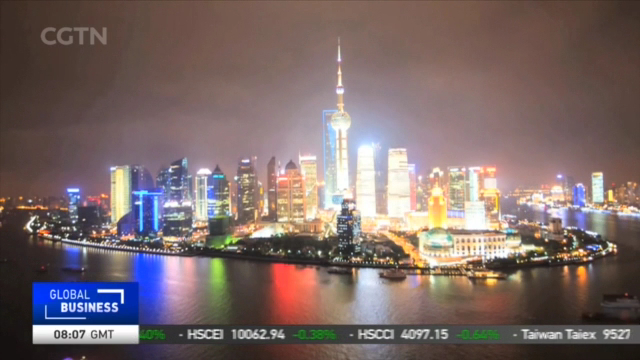
18:07, 25-Dec-2018
40 Years of Development: Foreign investment in China & Chinese overseas investment
Updated
17:38, 28-Dec-2018
02:40

UN data shows that China leads the world in attracting foreign investment. The data also shows that China is one of the world's biggest foreign investors. CGTN's Han Peng talked to business leaders from China and abroad to learn how reform and opening up has changed their investment strategies over the past 40 years.
In a country that has had a long love affair with tea, Starbucks opens a new coffee shop in China every 12 hours.
JULIE LEI BEIJING RESIDENT "I think Starbucks is more than a place to have coffee. It's more of a place to socialize and hang out."
The US brand entered China nearly 20 years ago. Sales struggled in the early going. In fact, Starbucks lost money in China for nine consecutive years. But the company's founder decided to stay the course.
HOWARD SCHULTZ FOUNDER OF STARBUCKS "I was one of the early CEOs in America saying how bullish and excited I was about the Chinese opportunity for Starbucks and the China market. We understood that there was a place in between home and work, which is the third place."
The result, China is now Starbucks' second largest market after the United States. 7 million loyal customers — the number tripled in just four years. The reform and opening up has created a rising middle class, opening up opportunities not just for global brands in China, but also of Chinese brands that are going global.
The city of Taizhou, not very far from Shanghai, was the birthplace of China's first private-owned automaker Geely, and the hometown of the company's legendary owner Li Shufu. In the 1990s, Li started his first business here: a small photo studio. Then a local refrigerator maker. And today, he's presiding over a fast-growing car company, and has made a string of stunning acquisitions of foreign giants, including Volvo and Daimler.
LI SHUFU, CHAIRMAN GEELY HOLDING GROUP "The purpose of our acquisitions is to raise the technological capability of Geely. In the future, China's private firms can no longer rely on low costs to compete with global brands. It will be a higher-end competition on technology."
Geely's ambitious overseas investment was once laughed at by many as "a snake that tries to swallow an elephant", and Starbucks' investment in selling coffee to tea-drinking market was also seen as a mission impossible. But over the past few decades, China has witnessed many business miracles like these. Han Peng, CGTN, Shanghai.

SITEMAP
Copyright © 2018 CGTN. Beijing ICP prepared NO.16065310-3
Copyright © 2018 CGTN. Beijing ICP prepared NO.16065310-3